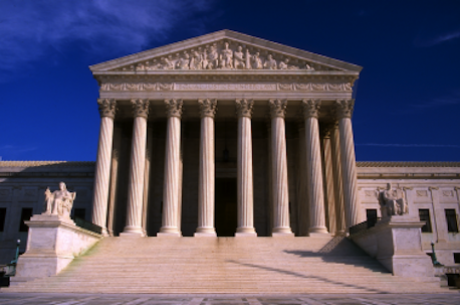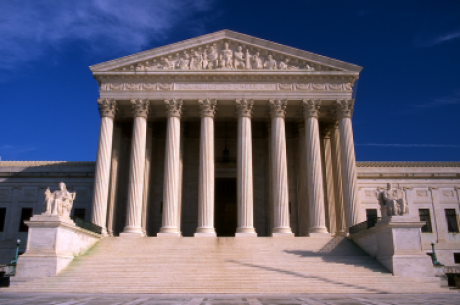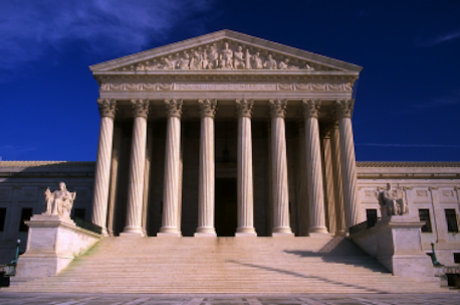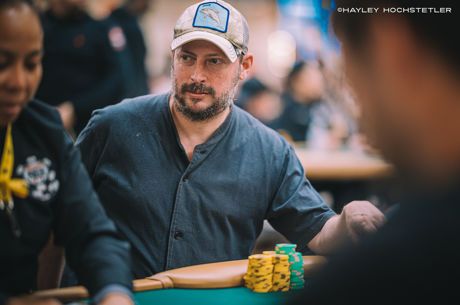Year in Review: 2013 Online Poker Legislation in the U.S.

2013 was a strange year in the effort to license and regulate Internet poker in the United States. There were long stretches with few developments on the legislative front. Yet, quietly, more was accomplished in 2013 than in the sum of the previous six years since the movement really began in response to the Unlawful Internet Gambling Enforcement Act (UIGEA).
Fully legal and regulated online poker started up in three states. It's something that one really needs to step back and appreciate. Prior to this year, Internet poker wasn't sanctioned by any state. Now online poker sites are live in New Jersey, Nevada and Delaware. In a decade, when online poker is being played throughout much of the country, with player pools that go across state lines, people will look back and think of 2013 as the beginning.
As I previewed the year, I wrote that online poker lobbyists planned to shift their focus from a federal to state-by-state platform. This certainly proved to be the case.
The highlight of the year came early, when New Jersey Gov. Chris Christie finally signed into law a bill approving Internet gambling in the Garden State last February. It came three years after the legislation was first introduced, and two years after it first passed through the state legislature. He vetoed the first bill, and waited until the final day this time with no one knowing what he would do. He went for a conditional veto, but it was good news as he laid out the exact changes he needed to sign the bill. Three weeks later, the legislature put the bill back on his desk with the chances and he signed it immediately.
As work began on New Jersey's online gambling regulations, Nevada took the lead by featuring the first hand of poker played at a regulated market in the United States on the Station Casinos-owned site UltimatePoker.com in April.
There were federal online poker bills introduced in 2013, mainly from Rep. Peter King (R-N.Y.) and Rep. Joe Barton (R-Tex.), but the issue was largely ignored on Capitol Hill. Senate Majority Leader Harry Reid (D-Nev.) didn't even muster his usual attempt at teasing legislation to appease his Las Vegas casino constituents.
Congress did hold two hearings regarding Internet gambling. A July hearing in the Senate Subcommittee on Consumer Protection, Product Safety and Insurance was disappointing as Senators came off as completely ignorant on the issue while witnesses offered clichéd fear mongering by calling the activity hotbed for money laundering and an avenue for human and drug trafficking.
Poker took a legal hit in August when the U.S. Appeals Court overturned the acquittal of Lawrence DiCristina. District Court Judge Jack Weinstein had ruled that DiCristina, who operated a regular poker game out of a warehouse in Brooklyn, was not liable under the Internet Gambling Business Act because the IGBA doesn't mention poker and the activity was distinguished from the forms of gambling that were addressed because it is a skill game. The Appeals Court ruled that whether or not poker is included in the definition of the IGBA was irrelevant because the activity was prohibited by state law. On the bright side, the Appeals Court left alone Weinstein's assertions that poker is a skill game, leaving them to be used as precedent.
In early November, Delaware beat New Jersey to launch the first the first regulated site in a U.S. state offering full online gambling.
Between February and November, the biggest news in New Jersey was whether or not PokerStars would be allowed to participate in the state's online gaming. The answer turned out to be not for now, as PokerStars and partner Resorts Casino Hotel were not allowed to participate when Atlantic City casinos launched their sites on Nov. 26. The New Jersey Department of Gaming Enforcement suspended review of PokerStars' application, citing the unresolved federal indictment of founder Isai Scheinberg.
Right around the time of the New Jersey launch, Las Vegas Sands chairman Sheldon Adelson arose as the biggest threat to the continued legalization of online poker. Claiming a moral issue against online gaming, the casino magnate and influential Republican who throws a lot of money around Capitol Hill began .
A December hearing in the House Energy and Commerce subcommittee on Commerce, Manufacturing and Trade might have been pushed for by Adelson to be the kickoff event of that campaign. Instead, the year ended on a positive note with Congressmen pointing out the hypocrisy of Adelson's opposition.
The state race began in 2013, and all of Adelson's billions can't turn back the clock.
Get all the latest PokerNews updates on your social media outlets. on Twitter and find us on both and !








